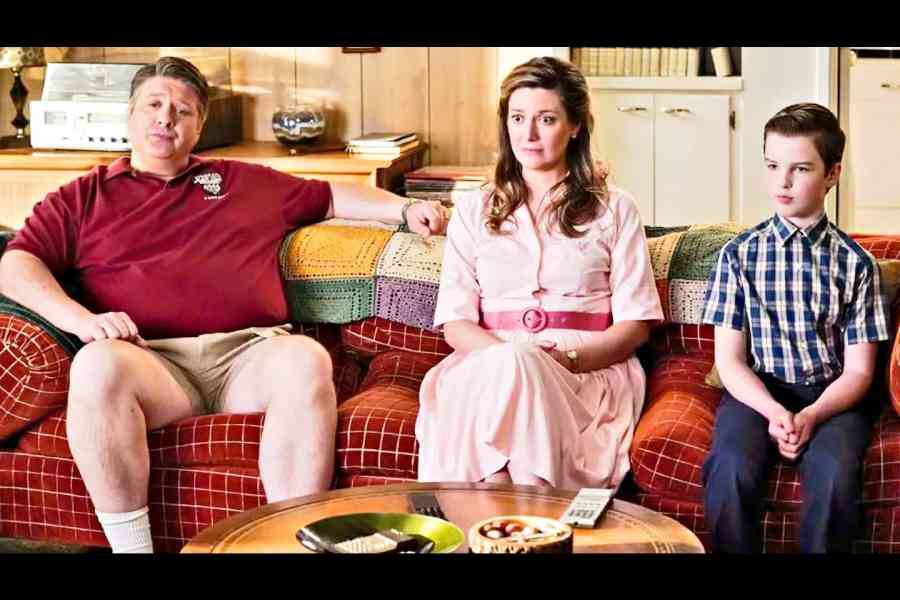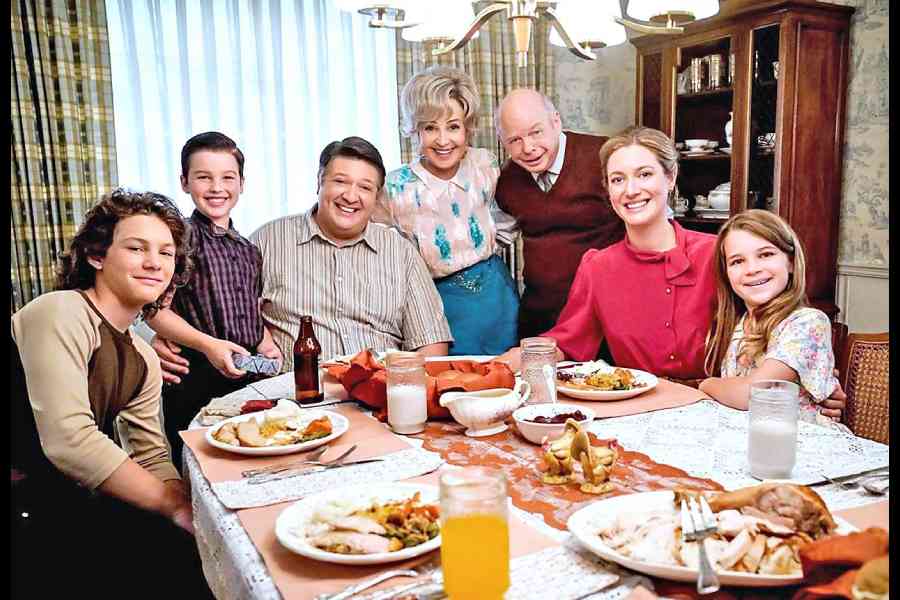As The Big Bang Theory (TBBT) spin-off show, Young Sheldon, comes to a tearful end, t2 takes a trip down memory lane, looking back at why the joys and tragedies faced by the Cooper family impacted us so much and why we simply loved this prequel.
Gives us an Understanding of Sheldon Cooper
Sheldon Cooper, one of the main characters in TBBT, has always been a peculiar character for audiences. This genius germaphobe has been both loved and hated by audiences for years. This prequel show, however, gives us ample context as to why Sheldon is the way he is. Growing up with extraordinary aspects of personality, such as an eidetic memory, superb olfactory senses, and immense scientific knowledge, we also understand that Sheldon’s casual rudeness towards people around him stems from a place of him being socially excluded from kids his age. Throughout his childhood, owing to his high intellectual ability, he had never been able to gel with kids his age, or even with his siblings for that matter. But Sheldon’s unawareness about his rude behaviour is what makes the characters around him still come back to him because, ultimately, deep down, they know that Sheldon’s intentions are not malicious, but rather come from a place of immaturity.
This sort of insight into Sheldon was not present in TBBT since it dealt with a much wider cast, but this sort of understanding of this divisive character gives us a lot more context to the character.
The Setting
We all knew that Sheldon was from a small town in East Texas, but not much of his backstory in the show was explored in this state. Young Sheldon rarely shifts its narrative from the town Medford, helping us understand more of the place and the kinds of people that Sheldon had grown up around. Be it the intense feeling of Americana, or the football craze all around town, this small town in East Texas really becomes the perfect backdrop to set such a story in. Also, we understand a lot about Sheldon when we get to experience this town through his eyes. Be it his lack of faith in God after growing up in such a God-loving state, or the shedding of his Texan accent as opposed to his family, we see the genesis here. Also, we see how people around him react to Sheldon’s demeanour, be it his pastors, teachers or even his family members.
Supporting Characters
It’s amazing how differently we perceive a character like Sheldon among different character ensembles. In TBBT, often the quirkiness of the whole friend group, coupled with Sheldon’s over-the-top antics, resulted in fun, but occasional annoyance for the audience. But in the case of Young Sheldon, Sheldon (played by Iain Armitage) being surrounded by his family members who want the best for him, creates much more endearing moments, which definitely makes it a delightful watch.

In Sheldon’s family, we have his twin sister Missy (played by a delightful Raegan Revord) who’s mischievous, yet with a tinge of wisdom, and his big brother, Georgie (played by Montana Jordan), who in the beginning was attending high school with Sheldon. When it comes to his parents, we have the caring yet hyperactive Mary (played by a deft Zoe Perry), who is an ardent believer in Baptist Christianity, and his father George Cooper (played by a lovable Lance Barber), who is a football coach in Sheldon’s high school and simply tries to hold on to his family to the best of his abilities. Then, of course, we have his beloved Meemaw, Sheldon’s grandmother, played by an incomparable Annie Potts, and her steady boyfriend Dale, played by Craig T. Nelson.
Though the show is about Sheldon Cooper, these supporting characters also get a solid character arc, with individual motivations, demons and challenges along the way. Sheldon, as a character, becomes much sweeter and, honestly, bearable around his family, which is where this show ultimately excels. Though the main protagonist is Sheldon, we also see the growing pains that Missy and Georgie face, or the marital issues between Mary and George. There are, frankly, more dimensions in Young Sheldon compared to its sequel series. And we couldn’t be happier about it.
Set Design
Unlike TBBT, which was filmed on a studio floor and in front of a live studio audience, Young Sheldon is filmed in a closed set. This slight change affects the story way more than one would think. When it came to TBBT, it was always apparent that there were parts of the sets that the characters could not go to because the audience would literally be there. Thus, even with clever blocking and set design, this issue with filming in front of a live audience is eventually why this format has become so redundant in today’s cultural climate.
In stark opposition to that, Young Sheldon is filmed in a close set, and it is indubitably much better for a story like this. The Cooper house, by far, seems like a place that Sheldon has grown up in and the intimate nature of the house makes the viewers feel as if they know every nook and cranny of the house after so many episodes. The closed set also makes the story feel as if it’s from Sheldon’s perspective, which makes it even more relatable and endearing for the audience.
The narration by Jim Parsons
This show is narrated by Jim Parsons, which we later found out by the end, was for adult Sheldon’s memoir. This added narration really suits the story as, often, the narration adds another dimension of Sheldon’s thoughts and ideas which he might not have expressed at that time but had buried inside him, giving us, the viewers, a deeper understanding of Sheldon. The narration by Parsons also gives us an added perspective of what adult Sheldon thinks of those memories and stories looking back.
Also, the narration is just flat hilarious to be honest. It never becomes annoying or over-the-top, because Sheldon as the character is over-the-top by nature. So, we as the viewers completely believe adult Sheldon when he still, after so many years, harbours ill feeling towards a particular isolated incident, because that is his inherent nature. It rounds out the show with moments of tragedy and joy, still revealing aspects of Sheldon’s character.











